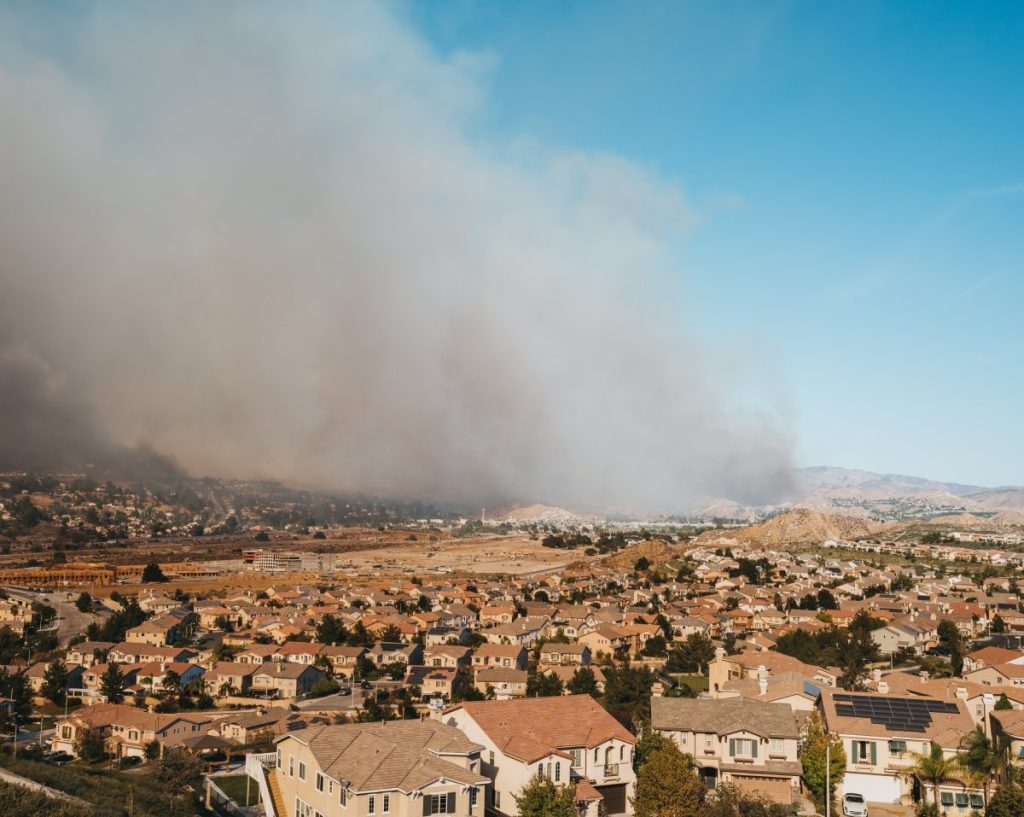As extreme weather events increase in frequency and severity across the United States, more homeowners and property owners find themselves filing flood damage claims than ever before. From hurricanes and tropical storms to unprecedented rainfall and rising sea levels, water-related disasters are becoming an unfortunate reality for many Americans.
At Merlin Law Group, we’ve witnessed firsthand how devastating these events can be — not just because of the initial damage, but often due to what follows: the frustrating battle with insurance companies that wrongfully delay, deny, or underpay legitimate flood damage claims.
This blog explores why insurers often deny flood claims and how experienced legal representation can help secure the fair settlement you deserve.
What is Flood Damage and How Does Insurance Cover It?
Before discussing claim denials, it’s essential to understand what constitutes “flood damage” in insurance terms. According to FEMA, a flood is defined as:
“A general and temporary condition of partial or complete inundation of 2 or more acres of normally dry land area or of 2 or more properties (at least 1 of which is the policyholder’s property) from:
- Overflow of inland or tidal waters; or
- Unusual and rapid accumulation or runoff of surface waters from any source; or
- Mudslides (i.e., mudflows) which are proximately caused by flooding; or
- Collapse or subsidence of land along the shore of a lake or similar body of water as a result of erosion or undermining caused by waves or currents of water exceeding anticipated cyclical levels.”
By this definition, flood damage and water damage are treated very differently in the insurance world. Most standard homeowners insurance policies cover certain types of water damage, such as that from burst pipes or malfunctioning appliances. However, they typically exclude damage from flooding as defined above. For flood protection, property owners must obtain separate flood insurance, usually through the National Flood Insurance Program (NFIP) managed by FEMA or through an authorized private carrier.
Many policyholders mistakenly believe their standard homeowners policy covers all water-related incidents. When a flood occurs, they may file a claim only to discover their policy specifically excludes such damage. Additionally, even with flood insurance, certain items may not be covered, such as:
- Personal property not inside a building
- Property in, on, or over water
- Land, trees, shrubs, animals, crops
- Underground structures and equipment (e.g., septic systems)
- Fences, seawalls, piers, docks
- Swimming pools and hot tubs (except as bathroom fixtures)
Common Reasons for Flood Damage Claim Denials
When policyholders file flood damage claims, insurance companies may deny them for various reasons. Understanding these common denial justifications can help you better prepare your claim and anticipate potential challenges.
Insufficient Documentation
Insurers often cite lack of proper documentation as grounds for denial. Without comprehensive evidence of the damage — including photos, videos, and detailed inventories-insurers may question the extent or cause of the damage. In our experience, thorough documentation is your best defense against such denials.
Policy Exclusions and Anti-Concurrent Clauses
Many policies contain complex exclusionary language and anti-concurrent causation clauses. These provisions allow insurers to deny claims when multiple causes contribute to the damage, and one of those causes is excluded. For example, if wind (covered) and flood (excluded) both damage your property, the insurer might deny the entire claim based on these clauses.
Delayed Reporting
Insurance policies typically require prompt notification of damage. If you wait too long to report flood damage, insurers may claim that you violated policy terms or that the delay prevented them from properly investigating the claim, leading to denial.
Pre-Existing Conditions or Maintenance Issues
Insurers frequently deny claims by alleging that the damage existed before the flood or resulted from poor maintenance. They might argue that water damage was due to long-term leaks, foundation issues, or other problems that your policy doesn’t cover, rather than the flood event itself.
Disputes Over Damage Assessment
Even when insurers acknowledge coverage, they often dispute the extent of damage or the cost of repairs. Adjusters may minimize damage or attribute it to non-covered causes, resulting in significant underpayment of legitimate claims.
Misinterpretation of Policy Terms
We’ve seen countless cases where insurers misinterpret policy language to their advantage, exploiting ambiguities or technical terms to justify claim denials. Sometimes this crosses into bad faith territory, where insurers deliberately misconstrue policy provisions to avoid paying claims.
Steps to Take If Your Flood Damage Claim is Denied
If your flood damage claim has been denied, don’t lose hope. Follow these steps to challenge the denial and protect your rights:
1. Review Your Policy Closely
Begin by thoroughly reviewing your insurance policy. Identify the specific coverage provisions, exclusions, and limitations that apply to flood damage. Pay special attention to how your policy defines covered perils and any requirements for filing and documenting claims. Understanding your policy’s language provides the foundation for challenging a denial.
2. Analyze the Denial Letter
Carefully review the denial letter sent by your insurer. This document should explain the specific reasons for the denial and cite relevant policy provisions. Identifying any inconsistencies, misinterpretations, or vague explanations in this letter can help formulate your response strategy.
3. Strengthen Your Case with Additional Documentation
Gather additional evidence to support your claim. This may include:
- Detailed photographs and videos of all damaged areas
- Written estimates from reputable contractors for necessary repairs
- Reports from independent experts assessing the damage
- Receipts and documentation of damaged belongings
- Weather reports and local news coverage of the flooding event
Strong documentation is essential for refuting an insurer’s denial and demonstrating the true extent of your loss.
4. Hire a Public Adjuster for an Accurate Assessment
Consider engaging a public adjuster — a licensed professional who works for you, not the insurance company. Public adjusters can provide an independent damage assessment, help document your loss properly, and negotiate with the insurer on your behalf. Their expertise can be invaluable in challenging lowball estimates and identifying covered damage that the insurance company’s adjuster may have overlooked.
5. File an Appeal
Most insurers have a formal appeals process for disputed claims. Submit a written appeal that addresses each reason for denial, supported by your additional documentation and expert assessments. Be aware that strict deadlines may apply for filing appeals, so act promptly after receiving a denial. If the internal appeal is unsuccessful, you may need to consider legal action.
The Role of Policyholder Attorneys in Securing Fair Settlements
When insurers refuse to honor legitimate flood damage claims, an experienced insurance claim attorney can significantly improve your chances of securing a fair settlement. At Merlin Law Group, we’ve been advocating for policyholders since 1985, helping them navigate the complex landscape of insurance claims and litigation. An experienced attorney brings several advantages to your case.
Expert Policy Analysis
Our attorneys specialize in interpreting insurance policies and identifying coverage that insurers may have overlooked or misinterpreted. We can analyze your policy’s language to counter denials based on exclusions or limitations, often finding coverage where adjusters claimed none existed.
Comprehensive Case Development
We build compelling cases by working with trusted experts in construction, engineering, meteorology, and other relevant fields. These professionals help establish the cause and extent of damage, countering insurer arguments that attempt to minimize your loss or attribute it to non-covered causes.
Negotiation Skills and Litigation Experience
Our attorneys are skilled negotiators who understand insurance company tactics and how to counter them effectively. When negotiation fails, we have the litigation experience necessary to take your case to court. Our track record includes successfully litigating claims and recovering a nine-figure settlement for a single insured.
Knowledge of Bad Faith Laws
When insurers act unreasonably in handling claims-denying coverage without proper investigation, offering unreasonably low settlements, or unnecessarily delaying payment-they may be liable for bad faith damages beyond the policy limits. Our attorneys can identify potential bad faith practices and pursue additional compensation when appropriate.
Key Takeaways and Final Thoughts
Dealing with flood damage is difficult enough without having to fight your insurance company for the coverage you deserve. Remember these key points when handling a flood damage claim:
- Know your policy: Understand what is covered and excluded before disaster strikes
- Document thoroughly: Take photos and videos of all damage immediately
- Report promptly: Notify your insurer as soon as possible after a flood
- Maintain detailed records: Keep copies of all communications with your insurance company
- Consider expert help: Public adjusters and attorneys specializing in insurance claims can significantly improve your chances of a fair settlement
At Merlin Law Group, we understand the frustration and hardship that follows both a flood disaster and a wrongful claim denial, and we’re committed to helping you navigate the claims process and obtain the full compensation you deserve under your policy. Our experienced attorneys have the knowledge, resources, and determination to stand up to insurance companies and fight for your rights.
If your flood damage claim has been denied or underpaid, contact Merlin Law Group today for a free case evaluation. Let us help you get back on the path to recovery.
FAQs
What is the average insurance payout for water damage?
The average payout varies widely depending on the extent of damage, the affected area, and your policy limits. Payouts can range from a few thousand dollars for minor damage to hundreds of thousands for significant flooding. What’s most important is that you receive fair compensation for your specific damage, not what others might receive on average.
How are flood damages valued?
Flood damages are typically valued based on either replacement cost value (RCV) or actual cash value (ACV), depending on your policy. RCV covers the cost to replace damaged items with new ones of similar quality, while ACV accounts for depreciation. Documentation, expert assessments, and contractor estimates all play important roles in establishing the value of your damage.
Does flood insurance cover debris removal?
Yes, most flood insurance policies cover the removal of debris caused by flooding, but there may be specific limits or conditions. NFIP policies typically include some coverage for debris removal as part of the building coverage. Review your specific policy to understand your coverage limits.
What is typically covered in a water damage insurance claim?
Standard homeowners insurance typically covers water damage from sudden and accidental sources inside your home, such as burst pipes, malfunctioning appliances, or sudden leaks. Flood damage-water entering from outside due to rising water-generally requires separate flood insurance. Coverage usually includes structural repairs, damage to personal property, and sometimes additional living expenses if your home is uninhabitable during repairs.



